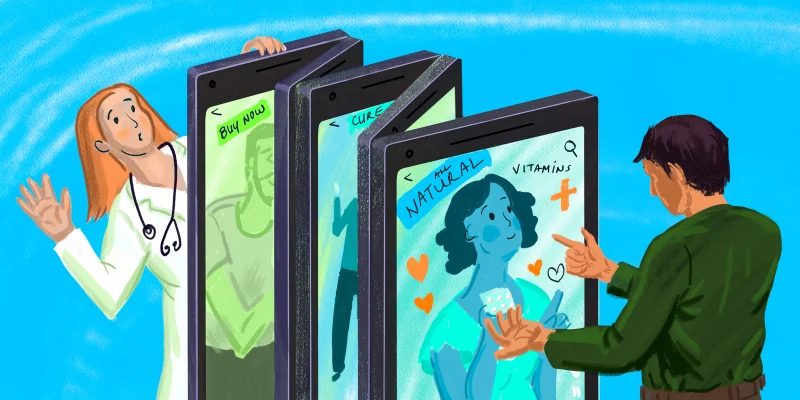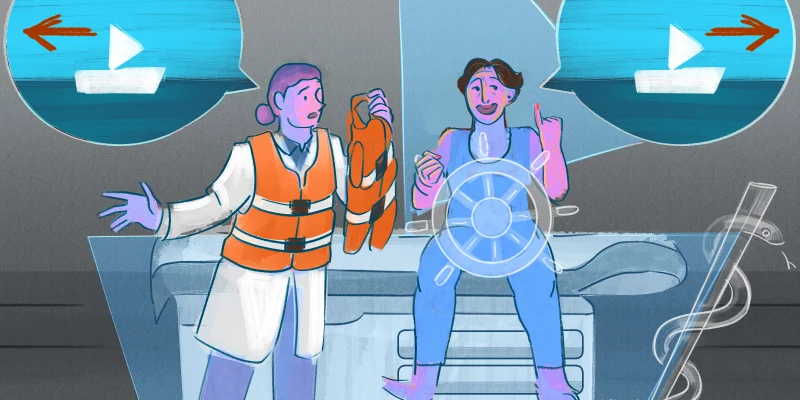
Informed consent is something we constantly think about in medicine. Do our patients know what they’re really getting into when accepting (or rejecting) a recommended treatment plan? It’s also something we geriatricians often consider as many of our patients have varying forms of dementia at varying states that may make their capacity for giving informed consent impossible. They can make pleasant small talk with us, but are they able to communicate real understanding, appreciation, and reasoning surrounding their choices when pushed further?
To make the best decision, one must be informed of not just the benefits of something, but also the potential risks and harms. And only when the person making the choice has ALL the information, and a firm understanding of who they are as a person and what their priorities are, can someone make a choice with informed consent.
But now it’s time to flip the tables. Informed consent is important for the clinician, too. So, if you’re considering geriatrics, here’s what you need to know, good and bad.
The Good
Of course I’ll start with the good. I can say definitely that if you are someone who likes relationships, who enjoys using their brain to solve puzzles, who is both detail oriented while simultaneously always keeping the “whole-picture” perspective in view, then you would make for a great geriatrician.
In helping persons and families navigate aging and all that comes with it, I get to use every non-surgical skill a doctor learns and possesses. It takes a vast amount of medical knowledge, but with a recognition that it’s impossible to know everything. Thus, a willingness and drive to constantly learn more for the benefit of those we care for is needed. It also requires emotional intelligence and empathy. If we as geriatricians are doing our jobs well, we will help our patients and their families through life’s most difficult transitions, in particular death.
Geriatricians tend to have an acute awareness of the temporary nature of life. It is extremely rewarding and an honor to have patients and families trust us in their most vulnerable and intimate moments, but it can take an emotional toll if one is not of the mindset that there is more to medicine than stopping death (an impossible task), and curing disease. Also, the wisdom that age brings and my patients share with me is a priceless gift. Oh, and sometimes older persons say the darndest things in the most honest and unfiltered way that can only come with living through a heck of a lot. I laugh, a lot, on the job.
Geriatric medicine truly epitomizes the “Art of Medicine.” As scientific and medical knowledge has advanced rapidly in recent centuries, so has the push towards evidence-based medicine. This is necessary progress, and has provided the medical community with life-saving standards of care and protocols. And every physician or medical provider of every type should routinely make sure they are up to date with the evidence and standards pertaining to their practice. Here’s the catch with geriatric patients: More often than not, they don’t follow the rules. The aging body frequently flips an epic bird to the EBM and textbook description of disease states. For the evidence to apply, there must be a body of evidence pertaining to that particular age. And frankly, there’s not much evidence for person’s 80 years old and up.
Hence, practicing geriatric medicine is often a balancing act between what should be, scientifically, with the reality of any one person’s distinct aging process. It is the art of Sherlock Holmes-ing a lifetime of genetic, environmental, iatrogenic, personal circumstances, natural physiology of aging, and any constellation of aberrant symptoms to uncover the root causes of the symptoms. From there, it’s helping persons decide if the risks of further tests or treatments would even be beneficial in the context of their goals and general prognosis. It takes a lot of time, thought, and intention. It is highly rewarding. BUT……..
The Challenges
Time is the key to practicing the art of geriatrics and doing it well. Often, the time is not in the form of a face-to-face visit (which is essentially the only thing medicare pays for). Rather, it’s in coordinating care, reviewing medications, reviewing records and solving diagnostic puzzles, making calls and referrals for services, counseling families from afar and on the phone, and being present to people even when your physical body isn’t able to be. Geriatrics is primarily a cognitive field (aside from ear wax removal, which is billable as a procedure). Herein lies the dilemma with geriatrics: Medical providers, in particular physicians, are not paid for their time.
Before you argue with me on that one, I urge you to look into the components of the Relative Value Unit formula for which Medicare bases provider reimbursement and then ask yourself why, for such a rewarding and needed field, there are hardly any geriatricians? Frankly, it’s a no brainer. If you’ve ever cared for a highly-complicated geriatric patient, you know that to even get paid by Medicare for your job well done you must spend about twice as much time than your actual patient care time just documenting to meet ever-changing and increasing regulatory burdens.
Medicare, the insurance for the elderly, does not incentivize taking the time to practice geriatrics well.
And those of us that do take the time often do so at the detriment to being able to pay our student loans, or at risk of even more pressure from our employers to up the RVUs and turnover. Sadly, it does not look like this trend in Medicare is going to be changing anytime soon, and you need to know that if you’re considering geriatrics.
Still, there is hope! Models of care, such as direct primary care, still offer a very-affordable means outside of the constrictions of Medicare regulations for providers to take the time necessary to truly practice the art of geriatrics. In spite of Medicare, positive change is happening here and now.
So, please do consider geriatrics if the good outweighs the downsides for you. We need you.
Dr. Shannon M Tapia, MD, is a geriatrician who is still figuring out starting her own home visit based practice and also dabbling in the blogging world at www.medicineontap.net. There’s more of a bio somewhere on her blog.







